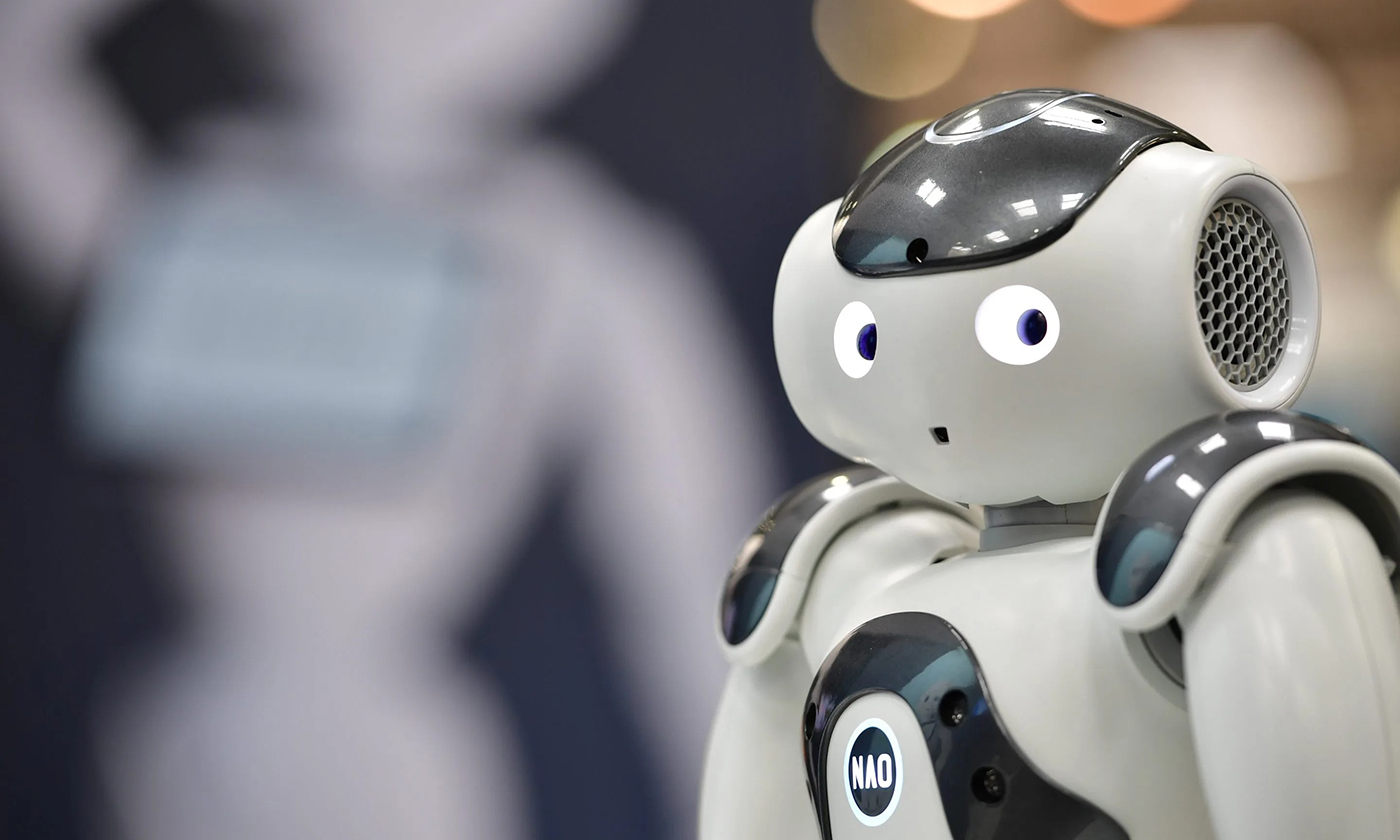
那些擔心機器人搶走他們工作的美國人只是電影看多了的“恐懼販子”,對嗎?
人工智能、自動化和機器人技術將提高工人的生產(chǎn)力,帶動經(jīng)濟增長,同時創(chuàng)造新的、更高薪的工作崗位——或者至少是這樣的論點。
但新的研究表明,機器人的崛起可能并不像一些人聲稱的那樣對工人有利。經(jīng)濟學家表示,自動化可能會對經(jīng)濟增長和生產(chǎn)力產(chǎn)生積極影響,但工人可能不會從中受益。
匹茲堡大學經(jīng)濟學教授奧西·吉恩泰拉(Osea Giuntella)、清華大學經(jīng)濟學教授陸毅和多倫多大學經(jīng)濟學教授王天義(音譯)在本月早些時候發(fā)表的一篇國家經(jīng)濟研究局的論文中寫道:“使用機器人對就業(yè)產(chǎn)生了負面影響,導致一些工人退出勞動力市場,失業(yè)率上升。”
這些經(jīng)濟學家利用超過15000個家庭的數(shù)據(jù),研究了工業(yè)機器人對中國勞動力市場的影響,發(fā)現(xiàn)勞動力很難“適應”機器人技術帶來的巨大變化。
他們寫道:“使用機器人導致中國工人的勞動參與率(下降1%)、就業(yè)率(下降7.5%)和時薪(下降9%)下降。與此同時,在那些堅持工作的人中,使用機器人使他們的工作時間增加了14%。”
十多年來,中國一直注重實現(xiàn)機器人技術和工作自動化,尤其是在工業(yè)領域。根據(jù)國際機器人聯(lián)合會(International Federation of Robotics)的數(shù)據(jù),中國擁有的工業(yè)機器人比其他任何國家都多,就在今年,中國的人均工業(yè)機器人數(shù)量超過了美國。
但是對于中國工人來說,機器人的崛起并不總是有利的。以蘋果公司iPhone的主要供應商富士康為例,在2012年至2016年期間,富士康在推動自動化的過程中用機器人取代了超過40萬個工人的工作崗位。
經(jīng)濟學家們表示,中國機器人技術導致勞動力市場短期陷入困境的證據(jù)很充分,并認為這對發(fā)展中經(jīng)濟體來說尤其是個壞消息。
發(fā)展中國家的過度負擔
經(jīng)濟學家們解釋說,在短期內,發(fā)展中國家的工人可能會感受到機器人技術和自動化崛起帶來的沖擊。
許多新興市場經(jīng)濟體嚴重依賴農(nóng)業(yè)和制造業(yè),在這些領域,自動化和機器人技術更有可能取代工人。由于新興市場工人中只有高中或更低學歷的人占比較高,許多人需要一定時間才能獲得必要的技能,這樣才能從機器人、人工智能和自動化帶來的新工作中受益。
“新興市場的機器人化對就業(yè)、增長和不平等可能帶來深遠影響。”經(jīng)濟學家們寫道。“如果不創(chuàng)造就業(yè)機會,自動化、數(shù)字化和節(jié)省勞動力的技術可能會加劇不平等。”
他們還認為,如果發(fā)展中國家選擇繼續(xù)用機器人取代工人的工作崗位來實現(xiàn)自動化,這些國家可能會面臨“提高生產(chǎn)率和潛在的更嚴重的經(jīng)濟不平等和社會動蕩”之間的抉擇。
最后,他們表示,機器人和自動化帶來的長期的生產(chǎn)力提升是否會在某一天“轉化為就業(yè)增長”,還要進行更多研究才能確定,但就目前而言,工人們可能會繼續(xù)因為這些新技術而失去工作。(財富中文網(wǎng))
譯者:中慧言-王芳
那些擔心機器人搶走他們工作的美國人只是電影看多了的“恐懼販子”,對嗎?
人工智能、自動化和機器人技術將提高工人的生產(chǎn)力,帶動經(jīng)濟增長,同時創(chuàng)造新的、更高薪的工作崗位——或者至少是這樣的論點。
但新的研究表明,機器人的崛起可能并不像一些人聲稱的那樣對工人有利。經(jīng)濟學家表示,自動化可能會對經(jīng)濟增長和生產(chǎn)力產(chǎn)生積極影響,但工人可能不會從中受益。
匹茲堡大學經(jīng)濟學教授奧西·吉恩泰拉(Osea Giuntella)、清華大學經(jīng)濟學教授陸毅和多倫多大學經(jīng)濟學教授王天義(音譯)在本月早些時候發(fā)表的一篇國家經(jīng)濟研究局的論文中寫道:“使用機器人對就業(yè)產(chǎn)生了負面影響,導致一些工人退出勞動力市場,失業(yè)率上升。”
這些經(jīng)濟學家利用超過15000個家庭的數(shù)據(jù),研究了工業(yè)機器人對中國勞動力市場的影響,發(fā)現(xiàn)勞動力很難“適應”機器人技術帶來的巨大變化。
他們寫道:“使用機器人導致中國工人的勞動參與率(下降1%)、就業(yè)率(下降7.5%)和時薪(下降9%)下降。與此同時,在那些堅持工作的人中,使用機器人使他們的工作時間增加了14%。”
十多年來,中國一直注重實現(xiàn)機器人技術和工作自動化,尤其是在工業(yè)領域。根據(jù)國際機器人聯(lián)合會(International Federation of Robotics)的數(shù)據(jù),中國擁有的工業(yè)機器人比其他任何國家都多,就在今年,中國的人均工業(yè)機器人數(shù)量超過了美國。
但是對于中國工人來說,機器人的崛起并不總是有利的。以蘋果公司iPhone的主要供應商富士康為例,在2012年至2016年期間,富士康在推動自動化的過程中用機器人取代了超過40萬個工人的工作崗位。
經(jīng)濟學家們表示,中國機器人技術導致勞動力市場短期陷入困境的證據(jù)很充分,并認為這對發(fā)展中經(jīng)濟體來說尤其是個壞消息。
發(fā)展中國家的過度負擔
經(jīng)濟學家們解釋說,在短期內,發(fā)展中國家的工人可能會感受到機器人技術和自動化崛起帶來的沖擊。
許多新興市場經(jīng)濟體嚴重依賴農(nóng)業(yè)和制造業(yè),在這些領域,自動化和機器人技術更有可能取代工人。由于新興市場工人中只有高中或更低學歷的人占比較高,許多人需要一定時間才能獲得必要的技能,這樣才能從機器人、人工智能和自動化帶來的新工作中受益。
“新興市場的機器人化對就業(yè)、增長和不平等可能帶來深遠影響。”經(jīng)濟學家們寫道。“如果不創(chuàng)造就業(yè)機會,自動化、數(shù)字化和節(jié)省勞動力的技術可能會加劇不平等。”
他們還認為,如果發(fā)展中國家選擇繼續(xù)用機器人取代工人的工作崗位來實現(xiàn)自動化,這些國家可能會面臨“提高生產(chǎn)率和潛在的更嚴重的經(jīng)濟不平等和社會動蕩”之間的抉擇。
最后,他們表示,機器人和自動化帶來的長期的生產(chǎn)力提升是否會在某一天“轉化為就業(yè)增長”,還要進行更多研究才能確定,但就目前而言,工人們可能會繼續(xù)因為這些新技術而失去工作。(財富中文網(wǎng))
譯者:中慧言-王芳
NAO, a humanoid robot, entertains visitors at the SoftBank Robotics stand at the 2018 CeBIT technology trade fair in Hannover, Germany.
ALEXANDER KOERNER—GETTY IMAGES
Americans who worry about robots taking their jobs are just “fearmongers” who’ve watched too many movies, right?
Artificial intelligence, automation, and robotics will boost workers’ productivity and spur economic growth while creating new, higher-paying jobs—or at least that’s the argument.
But new research shows the rise of robots may not be as beneficial for workers as some claim. Automation could have positive impacts on economic growth and productivity, according to economists, but workers might not reap the rewards.
“Exposure to robots had negative effects on employment, leading some workers to drop out of the labor force and increasing unemployment,” economics professors Osea Giuntella of the University of Pittsburgh, Yi Lu of Tsinghua University, and Tianyi Wang of the University of Toronto wrote in a National Bureau of Economic Research paper released earlier this month.
The economists examined the effects of industrial robots on the Chinese labor market using data from over 15,000 families and found that the workforce struggled to “adjust” to the dramatic changes brought by robotics.
“Robot exposure led to a decline in labor force participation (–1%), employment (–7.5%), and hourly wages (–9%) of Chinese workers,” they wrote. “At the same time, among those who kept working, robot exposure increased the number of hours worked by 14%.”
China has leaned in to robotics and the automation of jobs for over a decade, especially in the industrial sector. The country has more industrial robots than any other, and just this year, it overtook the U.S. when it comes to the number of industrial robots per capita, according to the International Federation of Robotics.
But for Chinese workers, the rise of robots hasn’t always been beneficial. Take the example of Apple’s main iPhone supplier, Foxconn, which replaced over 400,000 human jobs between 2012 and 2016 with robots in an automation push.
The economists said that the evidence for short-term labor market woes caused by robotics in China is strong—and argued that’s especially bad news for developing economies.
The developing world’s undue burden
The developing world’s workers will likely feel the brunt of the rise of robotics and automation in the near term, the economists explained.
Many emerging market economies rely heavily on the agricultural and manufacturing sectors where automation and robotics are more likely to displace workers. And with a higher share of emerging market workers having only a high school education or less, it will take time for many to acquire the skills necessary to benefit from the new jobs brought by robotics, A.I., and automation.
“The implications of robotization in emerging markets for jobs, growth, and inequality could be profound,” the economists wrote. “Without employment creation, automation, digitalization and labor-saving technologies may foster inequality.”
They went on to argue that developing nations may be faced with a decision between “increased productivity and potential higher economic inequality and social unrest” if they choose to continue automating away jobs with robots.
Finally, they said that there is still more research to do on whether long-term productivity improvements from robotics and automation will “translate into employment growth” someday, but for now, workers will likely continue to lose jobs to these new technologies.






